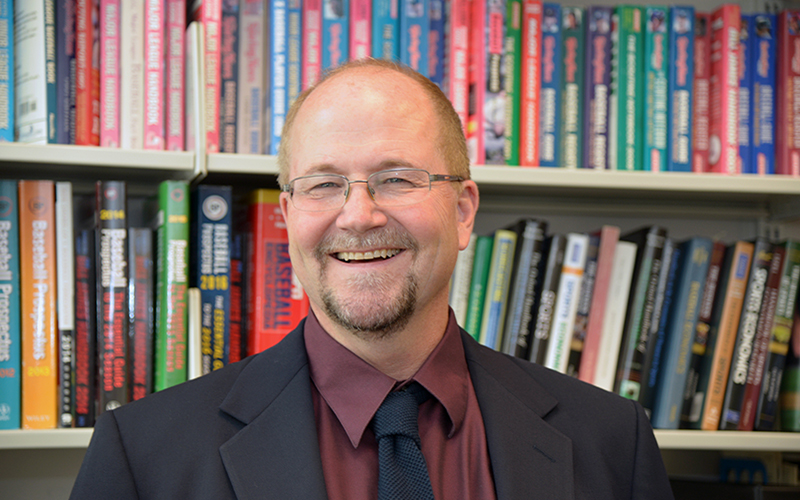Anthony Krautmann has been teaching economics at DePaul for over thirty years. Now the sports economics and microeconomics expert has a new role – Department of Economics chair.
In addition to teaching, Krautmann will now be responsible for leading the department and for promoting teaching excellence, research and service. Below, Krautmann discusses his unique interest in economics, his goals for the department and why it’s a great time to be an economics student.
Why did you choose to become an economics professor?
When I was an undergraduate student at the University of Iowa, I had a hard time selecting a field of study. I took an economics class and while most of my friends struggled, I performed well and was genuinely interested in the subject matter. I liked the idea of using numbers and deductive reasoning in a combination of liberal arts, social sciences and basic sciences. I continued taking economics courses and when I earned my undergraduate degree during the biggest recession since the Great Depression, I decided to further my education.

Tell us about your research.
My initial research focused on the economics of nuclear power. I was studying energy and economics during the time of the nuclear accidents at Chernobyl and Three Mile Island. People were leery about nuclear power and I noticed that there wasn’t much research in this topic. As a microeconomist, I was fascinated by the empirical and theoretical research of energy, and published several papers about this subject matter.
After teaching at DePaul for a few years, I noticed a new field that was suddenly taking off. Sports economics combined both my professional and personal interests. Along with several other sports economists, I helped form a sports economics association, I also published dozens of papers on this topic. What makes sports economics interesting to the general public is the labor markets and salaries of players—like how somebody can be worth $300 million—or, how players migrate from team to team, how sports leagues behave and what effect winning games has on the economics. It is an oddly fascinating type of economic entity.
What do you hope to accomplish as economics chair?
One of the reasons I came to DePaul in the first place was because as a school, we pride ourselves on being research oriented and scholarly. I would like to find ways to encourage our faculty to do more research and publication. There are hundreds of journals in economics and a huge variation in topics. Publications can bring recognition to the department and school as well as bring in more speakers and conferences. It also helps attract students and faculty.
Why is now a good time to study economics at DePaul?
Whether students are in the undergraduate, MBA or Master of Science in Economic Policy Analysis (MSEPA) programs, our students are prepared for a career in consulting, all levels of government, non-for-profit organizations and business. Our curriculum emphasizes theory and application, and students learn how to analyze data, how to critically evaluate policies, and how to write clearly about their conclusions and their research. When students have taken all the required economics classes, they are in pretty good shape for the job market.
Economics has become a more general degree than finance or accounting, which have specific job targets. The job market has been very strong for economics majors and our students are well prepared for careers in fields that demand a solid application of economic theory to policy and real-world business problems. We work closely with our students throughout their academic careers and have had great success placing our students into highly desired jobs in both the public and private sectors.
Learn more about DePaul economics degrees: